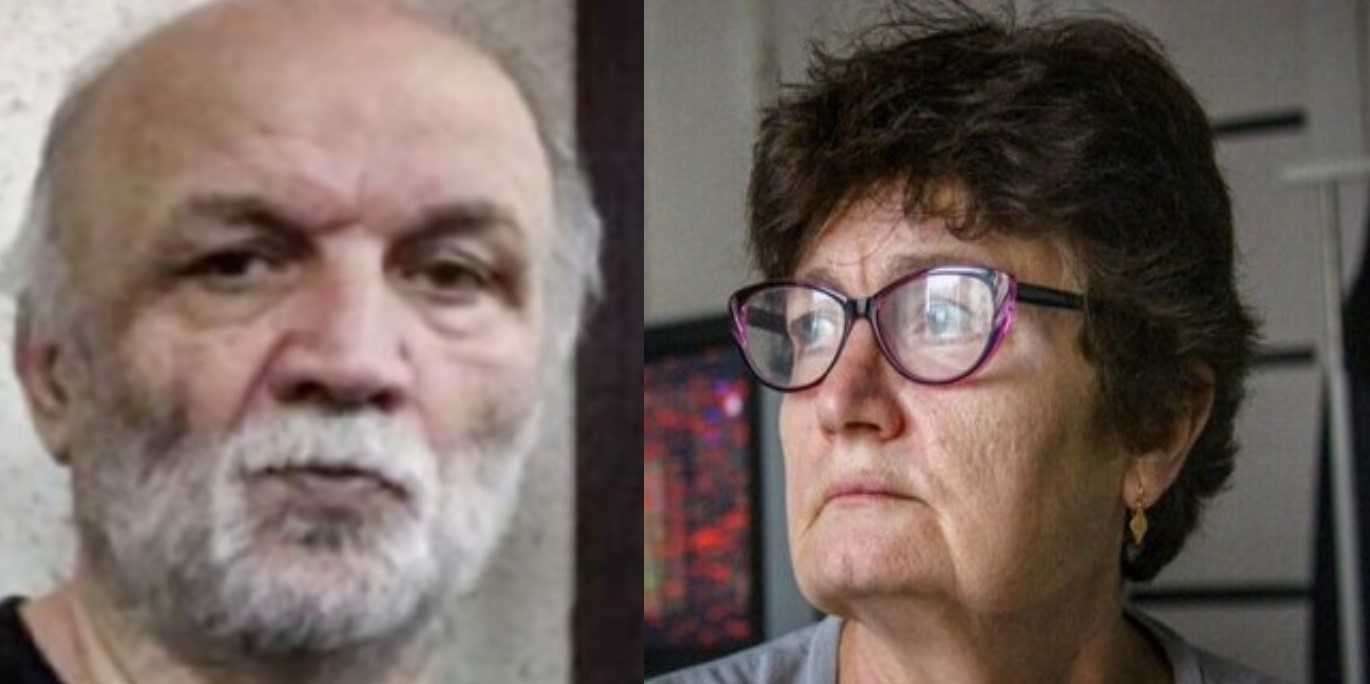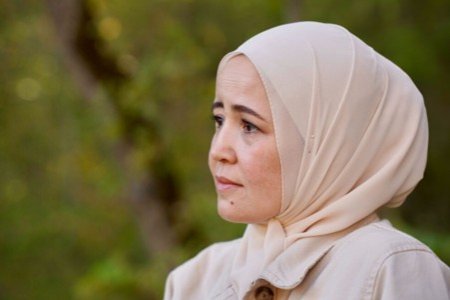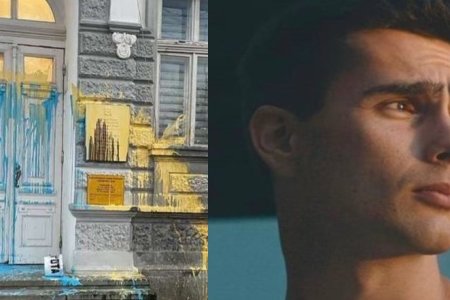
The Russian occupiers of Crimea have yet again targeted the family of former Crimean Tatar political prisoner Asan Chapukh. This time, however, it was his 67-year-old wife, Asiye Chapukh, who was taken away after an armed search of their home, conducted by men in masks from the so-called ‘centre for fighting extremism’.. She later faced three separate administrative charges, with one of these under notorious legislation used to silence protest over Russia’s full-scale invasion of Ukraine, and over Facebook posts.
It is typical that the ‘search’ in the morning of 14 October was formally prompted by a ‘denunciation’. The individual involved, blogger Aleksandr Talipov, has already been involved in provoking prosecution for a Ukrainian patriotic song played at a Crimean Tatar wedding. This time, he turned his attention to two pensioners, Asan Chapukh, who had buried his own brother the day before and who is suffering from fourth-stage throat cancer, and his wife, Asiye.
On his Telegram channel on 12 October, Talipov posted several screen shots from the Facebook page of ‘Ivan Petrov’, claiming that the page was Asan Chapukh’s. He revealed the street that the Chapukhs live on in Toreiz and threatened all who ‘liked’ the photo on the page of Chapukh together with veteran Crimean Tatar leader and Ukrainian MP, Mustafa Dzhemilev.
Anton Naumliuk from Graty spoke with lawyer Rustem Kyamiliev about the prosecution. It is clear that, within two hours of Talipov’s publication, K. Sodirov, a ‘captain’ of the ‘centre for fighting extremism’ had begun examining the Facebook page.
Until the search, it would appear that both Talipov and the ‘centre’ thought that their target was Asan Chapukh, a man whom the Russian occupation regime almost killed in 2017-18, and who is gravely ill. Instead, during the search, Asiye Chapukh stated that it was she who had posted on the ‘Ivan Petrov’ page.
The first of the posts, over which she faced administrative charges, was from 1 October 2022 and calls Russia “a country created for death, not for life” which “should finally die in order to stop the death of innocent people all over the world.” “After the regime is buried, terrorism and other bloody perversions will disappear.”
It was this post which was claimed to ‘discredit the Russian armed forces’.
The charge of petty hooliganism was over several posts in November 2021 and October 2022. In one of them, Russian leader Vladimir Putin was depicted against the background of a portrait of Adolf Hitler. The caption reads: “We should say out loud that Russia is a fascist state”. Another post has only the question: “Ukrainians! Is Putin a dickhead?”
The third charge - of ‘displaying a prohibited symbol’ - was over a post from 12 October with the emblem of the Azov Regiment. This is part of Ukraine’s National Guard, yet Russia recently claimed the Regiment to be ‘a terrorist organization’ and has already initiated at least one criminal prosecution – against 20-year-old Appaz Kurtamet, who was first abducted and held incommunicado for three months.
Since Asiye Chapukh did not deny that she had posted the above, ‘judge’ Oksana Synitsyna from the Russian occupation ‘Yalta city court’ chose to view this as ‘acknowledgement of guilt’. She was fined 30 thousand for each of the first two charges, and one thousand over the ‘prohibited symbol.’.
Kyamilev has said that he will be lodging an appeal.
Asan Chapukh and the ‘Vedzhiye Kashka Case’
All of the political persecution that Russia has brought to occupied Crimea is shocking, and the charges are almost always cynical and legally nihilistic. The criminal prosecution that the FSB came up with in November 2017 was, nonetheless, especially shocking.
In April 2017, the UN’s International Court of Justice had allowed Ukraine’s request for provisional measures against Russia and specifically ordered that Russia withdraw its extraordinary ban on the Mejlis, or representative assembly, of the Crimean Tatar people.
Instead of complying, Russia initiated several prosecutions aimed at trying to discredit the Mejlis. One of these was against 83-year-old Vedzhie Kashka, a world-renowned veteran of the Crimean Tatar national movement and four other Crimean Tatars: Asan Chapukh; Bekir Degermendzhy; Kazim Ametov and Ruslan Trubach. None of them was, in fact, a member of the Mejlis, but all demonstrated a strong civic position and were respected members of the Crimean Tatar community.
On 23 November 2017, the Russian FSB, OMON and National Guard officers took part in an ‘operation’ against Vedzhie Kashka and the four who were trying to help her retrieve family savings ($7 thousand) that an unscrupulous man who had ingratiated himself with Kashka’s granddaughter was refusing to return. It is unclear when Yusuf Aitan (a Turkish citizen) began collaborating with Russia’s FSB, and whether he himself initiated this as a means of getting to keep the Kashka family’s savings.
The gratuitously violent ‘armed arrests’ caused the death of Vedzhie Kashka. Russian and Kremlin-loyal Crimean media tried to avoid any mention of this, and instead came out with surreal lies, claiming, for example, that “Weapons, drugs and extremist literature were found at the homes of the arrested Mejjlis men” It was even asserted that machine guns were found, citing “a source in the enforcement agencies”.
The four men, all of whom had been active in defending political prisoners since annexation and in the Crimean Tatar national movement, were taken into custody. They were held in the appalling conditions of the Simferopol SIZO [remand prison] for well over a year, despite the fact that Degermendzhy’s severe asthma meant he should not be in detention at all, and Chapukh had suffered a mini-stroke shortly after his arrest. Chapukh had lost control of one side of his body, was unable to speak and was totally dependent on cellmates yet was only finally released under house arrest when it became obvious even to the FSB that he could die at any moment.
The charges were flagrantly cynical and absurd, yet in April 2019, all four men were found ‘guilty’ and received fairly long suspended sentences.



